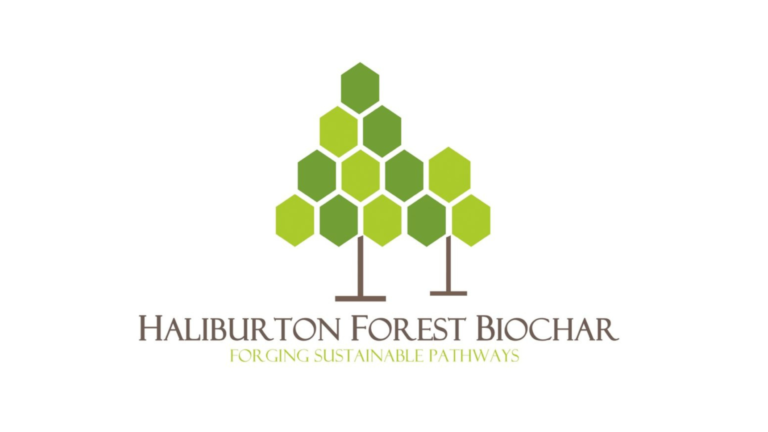Renewable Carbon Production as Viable Substitute to Fossil Products
CRIBE Funding: $1,020,525
Project Total Value: $3,376,050
Share this post

Project Lead: Haliburton Forest Biochar
Consortium members: Haliburton Forest Biochar, Haliburton Forest and Wildlife Reserve Ltd.
Project Goal
To support a commercially-viable demonstration facility to produce high-carbon (70 to 95%) biochar.
Clean technology to be demonstrated at commercial volume using only virgin wood fibre from Ontario.
Haliburton Forest Biochar embarks on the transition to commercialization, supported by CRIBE, with aims to utilize raw sawmill residues from local natural forests, supplying the manufacturing sector with a viable intermediate commercial carbon to meet demand in Ontario.
The practical application of this clean technology is to pyrolize single-species wood fibre under set parameters to produce amorphous carbon with specific required properties fit for downstream industrial processes in multiple facilities and applications.
Commercialization will allow for competitive substitution of finite resources and the sequestration of organic carbon on a grand scale. HFB is the first biosector employer in its county of operation, currently with 5 full-time employees, expected to grow to 15+, stimulating economic growth in rural Ontario, the forestry sector, and providing compelling employment opportunities adapted to a more resource-use-efficient future.